- Home
- Andy McNab
Recoil Page 7
Recoil Read online
Page 7
I got Étienne’s voice, but it was only on answerphone. My French wasn’t great. In fact, it was virtually non-existent, but I got the drift. The office wouldn’t be open again until nine a.m.
Fuck that. Maybe she really was working; maybe they’d turned the phones to voicemail. Étienne often did when he was busy. I grabbed my bomber jacket and headed downstairs.
It was cold on the moped as I weaved in and out of the evening traffic, but I felt a whole lot warmer when I swung intoVia Zurigo and saw that the lights were still on in Do Good Land.
I rang the doorbell. Nothing happened. I rangagain, longer this time, until Étienne appeared behind the glass door. He looked tired, but more than that – surprised.
‘Silke still here?’
His brow furrowed even more. ‘She left three or four hours ago.’
‘Where to?’
‘You don’t know?’
‘Course I fucking don’t. I wouldn’t be here, would I?’
He started to look really worried. I didn’t want that: he was one of the good guys.
‘I’m sorry, mate. I’m a bit confused. Where’s she gone?’
Maybe Étienne had seen this before. Did I know anything about her?
‘Come on through. Let me get you some coffee.’
We walked past the battered sofa and coffee-table they called Reception and along a corridor into an open-plan area. One corner was piled with boxes. I perched on the edge of a desk. Appeal posters were pinned to the wall in front of me. The photographs and shoutlines gave me the same uncomfortable feeling I’d had earlier, by the lake, every time I saw them.
Over a close-up of a young girl’s face, her eyes staring and empty:
Ester is 8 years old. Yesterday she walked 30 kms
to our clinic. For water? For food? For medicine?
No, for rape counselling.
Over a similarly bleak shot of a young boy staring into the camera:
Byron is 9 years old. Yesterday he had to kill two
people in his own home. Burglars? Kidnappers?
Armed intruders? No, his parents.
There were another couple of desks with telephones, and that was about it.
‘We run on a shoestring. We get the cash towhere it’s needed.’ Étienne lifted a jug from a coffee machine. ‘But the coffee’s pretty good. Well, usually. I mean, it’s late, and—’
‘Where is she, Étienne?’
He nodded at one of the posters. A medic was bandaging a stump where a small African boy’s hand should have been. ‘Tim runs the camp in DRC, near the Rwanda border. Silke’s been working on his aid campaign. She organized everything, even wrote the posters.’ He smiled. ‘You must be proud of her.’
‘Yes. Very.’ Fuck, she’d probably told me all this stuff and it had gone in one ear and straight out the other.
Étienne stared at the posters, lost in another world. ‘Tim’s operating in impossible conditions. I expect she told you – in the last twelve months alone there’ve been two thousand cases of rape, mutilation and summary execution, just in Ituri province. That’s where our camp is.’
His hand shook as he poured the coffee. It might be outrageous stuff but these guys had to be conditioned to get past that shit to operate. Things must be grim out there if they’d got to him like this.
‘I was out there myself a month ago. When we took our mobile clinic to places where there were roads, we passed burned-out houses, one village after another completely destroyed and abandoned. It was terrible.’
His hand shook more as he thought about what he had seen. ‘She talks about you a lot, Nick.’
‘That’s nice. But where is she?’ I’d already got there, but I needed to hear it confirmed.
‘She’s on our relief plane to Kinshasa.’ He shifted his gaze from the posters at last. ‘Today was the tipping point. On top of everything else, there was an earthquake, just a minor one but it’s devastated the village we’re based in. Tim’s overrun. We’ve never heard him sound so desperate.’ He put down his cup. ‘She felt she couldn’t stand by while—’
‘Where did they fly from?’
‘Geneva. A charter, non-stop to Kinshasa, with as much aid as we could buy. It’s emptied the bank account. Then it’s trucks east to the road head and after that on foot.’
‘They must have a radio or something – sat phone?’
‘Sat phones are a luxury we can’t afford . . . There’s one at the camp, but—’
‘When will she get there? Are they part of a relief convoy from Kinshasa?’
‘Tim phones us every couple of days, or if there’s an emergency – which is most of the time at the moment.’ He tore the top sheet off a memo pad and scribbled a number.
I counted twelve digits. It must be an Iridium.
‘Please don’t use this unless you absolutely have to. They’re swamped by casualties. I’m sure she’ll contact you as soon as she can.’
‘You’re right.’ I swigged the dregs and put the cup down on the desk. ‘But will you ask Tim to remind her anyway?’
He nodded.
‘And I need the exact location of this camp, mate. You got a map reference or the name of the village?’
Étienne didn’t ask why I wanted to know so much as he wrote down the details. Just as well because I wasn’t going to tell him. How could I, when I wasn’t sure myself?
He walked me to the door. We shook, and he kept his grip as he looked me in the eye. ‘Nick, I’m not going to bullshit you. It’s a horrible, dangerous place. I’m still having nightmares, but she obviously felt she had to go. All I can say is our camps have never been attacked. Let’s keep our fingers crossed and pray it stays that way.’
5
Fuck praying.
I rode the moped back uphill like a man possessed. I needed to get to the house and throw my stuff together and – fuck – do what, exactly? Were there planes or trains this time of night? To where? How the fuck would I get myself into the middle of the jungle and find that poxy village? I didn’t even know where I wanted to go. All I knew was that I was going to get her out of that shit-hole and find out one way or another if she would marry me. It wasn’t brain surgery.
Maybe Stefan could do something. Maybe he had some way of contacting her I didn’t know about. Maybe he controlled her bank account and credit cards – maybe he could threaten to cut her off if she didn’t turn straight round. I mean, there wasn’t much love lost between them, but even so, he wouldn’t want her risking her life for what he’d see as a bunch of worthless natives. No, why would he do anything now? Everyone else seemed to know but me: she’d always been like this. Maybe he already knew. Fuck it, who cared? I didn’t need anything from him.
I dumped the moped next to a big blacked-out BMW parked right outside the front door and stormed into the house.
I half ran down the hall. Stefan was back in the sitting room with a whisky, but he was no longer alone. Two Chinese guys, both very formal in grey suits and ties, were standing with him by a desk, poring over maps and papers. Cigarettes dangled from their mouths.
He saw me, excused himself and started into the hallway. There was no need. I gave him the middle finger and a cutaway sign before I headed for Silky’s room.
What the fuck did she think she was playing at? This was grown-up stuff. It wasn’t a party. She couldn’t just phone a cab home if she got bored.
As I paced her floor, I stared at the twelve-digit number for so long I could have recited it. I wanted to call, but I resisted. What was the point? Even if the flight got in tomorrow morning, it would take them days to get there. The roads were shit – when there were roads.
What time would they land?
I Googled Kinshasa airport. There was a contact number, and the time difference was only one or two hours from GMT, depending.
I dialled. The line crackled, and there was a distant ring tone. I got a faint voice over background mush. It sounded like the airport was at the bottom of an ocean. I struggle
d with my French and the guy struggled with his English, but we established between us that the plane from Geneva was arriving at six thirty in the morning. I thanked Jacques Cousteau and hung up.
It would take them ages to get landside. African bureaucracy had to be experienced to be believed. They might not even be granted visas.
They? Was she travelling with other volunteers? I hadn’t asked Étienne. Did they already have visas? Something else I’d forgotten. There was so much I didn’t know.
They might be turned away. They might not even get landside.
That was the first positive thought I’d had. If Silky was denied entry, she’d be put straight back on the plane. If not, there’d be a window of maybe an hour or two, from about ten a.m. local time, when I might get through to her mobile. If she’d taken it with her, and if it was switched on. And assuming there was coverage in the city . . . What the fuck did I know?
I got back on the keyboard. KLM flew there from Milan, about an hour’s drive south, but not every day. And all their flights seemed to go through South Africa. To get to Kinshasa direct on a scheduled airline, you had to fly via Brussels.
Even assuming I got on to a flight, if these guys could have problems getting visas, what chance did I stand? Democratic Republic of the Congo wasn’t exactly a tourist Mecca. How was I going to bluff my way in? I was beginning to feel like a snowball rolling down a hill.
I Googled for DRC consulates or embassies, to try to find out if I could get a visa before I left. Some of the websites wouldn’t open, and those that did had none of the information I needed.
I binned it.
It wasn’t as if I had to get to Kinshasa before the convoy headed out. She was going into the lion’s den, but at least I knew where the lion’s den was.
I looked up Ituri province on the border with Rwanda and tried to find this fucking village, Nuka. I might not be able to get there at the speed of light, but I knew a man who could help me. And if he didn’t, he’d wish he hadn’t been born.
It was scarcely first light when I wandered down to the basement. The chef wasn’t up yet, but Giuseppe was. In fact, he looked like I wasn’t the only one to have sat up all night.
‘Mr Stefan is leaving for China later today. He’s told me to offer you a car and driver to take you to the railway station or the airport as soon as convenient – but in any event by lunchtime.’ He couldn’t quite meet my eye. ‘I’m sorry, Mr Nick.’
‘No problem, Giuseppe. I knew the fun couldn’t last.’
He followed me out to the moped with a small package in his hand. ‘For your journey,’ he said. His breath smelled of whisky.
I rode to the airport with my PVC holdall on my lap. Abandoning the moped outside the terminal was immature, but it gave me some kind of satisfaction. It was bound to be Stefan’s. He owned everything.
Then, as I checked in, with not so much as a second pair of shoes to my name, let alone a pair of wheels, I had a thought. Everything I owned was in my holdall: a bit of washing and shaving kit, a sleeping bag I’d nicked from Silky’s room, two spare T-shirts and lots of underwear.
I didn’t have a home, not even a camper van or a tent. I had nothing in the world except a cheap ring and a beautiful German girl, and maybe I didn’t even have her any more.
Well, that wasn’t completely true. I had the cheese and Branston sarnie Giuseppe had given me. And the small bottle of water he’d emptied and refilled with what looked suspiciously like thirty-year-old malt.
6
Friday, 9 June 2006
The seatbelt light flickered on and the crew collected our empty coffee cups. The pilot came on the intercom and thanked us for flying Darwin Air from Lugano, and reminded us that the time in London was nine fifteen a.m. Not that anyone was listening. They were all too busy powering down their laptops and putting their shoes back on. I was the only one aboard not using one, and the only one wearing jeans and a leather bomber jacket.
The last time I’d flown in a prop-driven aircraft, it had been taking me to war. This smart new Saab was a world away from a cramped, noisy Hercules, but I was feeling every bit as uneasy.
Last night’s Google had come up with some scary reading. There were about 17,000 UN troops in DRC – the world’s biggest peacekeeping mission – but, even so, they were stretched. Eight Guatemalan soldiers had just been killed in a clash with the Lord’s Resistance Army. That didn’t worry me too much, but what did was reading on and discovering why the UN were so crap at their job in the eastern part of the country. It wasn’t only the rebels kicking their arse, it was the terrain. Swamps, savannah, lava plains, all covered with impervious rainforest and high mountain peaks. The rebels had mastered it better than the peacekeepers. That didn’t worry me. It was the thought of trying to navigate over that terrain and get there before anything happened to her.
We descended through cloud. The outskirts of London were worn out and grey, but then we did our approach over the sci-fi film set they called Docklands. There were so many cranes, they looked like wheat in a field.
I didn’t want to power up my mobile again. That blank screen was starting to get to me.
7
I drove west. I wanted to cross London, get on to the M40 to Oxford, then off towards Hereford. There had been no call from Silky, and it had taken a lot longer than I’d wanted to get hold of the little Corsa 1200. The problem was, my Virginia driver’s licence carried my old address in Crystal City, just outside Washington DC, and my credit card had the Swiss address. I’d done the switch when Silky and I had moved from Australia so there was somewhere to send my bills. I’d stood my ground while the computer stood its own: I told the woman behind the counter that it wasn’t going to process my details because they didn’t fit the software. At last she accepted my ‘I’ve just moved over there to work’ excuse. The final receipt would be sent to Lugano.
I knew I should have taken the M25 orbital, but it felt more immediate to cut directly through the city. I just wanted to keep moving in the right direction.
Big mistake, as I realized within twenty minutes when I crept from traffic light to traffic light in Silvertown. Then I hit a faster stretch of road and got flashed by three consecutive cameras that had sprung up like weeds since the last time I was here.
I couldn’t help but think about the row we’d had yesterday. Maybe it was me who’d sparked this whole thing off . . .
I’d just got away from another lot of traffic lights and was stuck between two trucks when the mobile rang.
At last.
I picked it up but didn’t see the twelve digits I was hoping for. It was the Swiss prefix instead.
‘Nick?’
‘Étienne . . .’
‘Just calling to say still no news. Come in for a coffee if you want. It’s fresh on.’
‘Thanks, mate, but I’ll have to take a raincheck on that. I’m on my way to a mug of tea.’
8
It took far longer than it should have to get to Hereford. It was bucketing with rain all the way, and everyone drove like it was the first time they’d seen the stuff.
I came down Aylestone Hill into the city centre, and passed the railway station. Four and a half hours was still quicker than a train would have been, by the time I’d trekked from Docklands to Paddington. In any event, I needed wheels. He didn’t know it yet, but Crazy Dave was going to find me a contact in-country and buy me a ticket – fast. As soon as I’d read him his horoscope, I wanted to be heading for an airport.
I passed the cattle market and headed for the other side of town. Huge estates had sprung up like mushrooms in the eighties. Bobblestock had been among the first of the new breed. The houses were all made from machined bricks and were uniformly ugly. Then they had given the roads names like Chancel View and Rectory Close, even though there wasn’t a single old church in sight. With two point four children inside, a Mondeo on the drive and front lawns small enough to cut with scissors, these places had about as much individual character a
s a room in a Holiday Inn. No wonder it was Crazy Dave’s manor.
The only crazy thing about Dave was that he’d earned his name because he wasn’t: he was about as zany as a teacup. He was the kind of guy who analysed a joke before saying, ‘Oh, yeah, I get it. That’s funny.’
There had always been a broker knocking around Hereford. He had to be ex-Regiment because he had to know the people – who was in, who was getting out – and if he didn’t, he had to know a man who did. Crazy Dave had set up in business when he was invalided out of the Regiment after a truck driver from Estonia bounced him off his Suzuki on the M4 and forced him to take the scenic route. He’d done a tour of the central reservation, then checked out a fair amount of the opposite carriageway. His legs were still useless and he was in and out of hospital like a yo-yo. I’d felt sorry for him when I met up with him last year. Now I thought two fucked-up legs weren’t enough.
Only a few months ago, a friend of mine from Regiment days had gone to Crazy Dave for work. He was in the early stages of motor neurone disease, and wanted one last big pay-off so his wife would have a pension. So far so good, but Crazy Dave had found out and taken advantage. Charlie was so desperate, he accepted only a fraction of what the job was worth, and Dave had pocketed the rest.
I pulled up outside a brick rectangle with a garage extension that might have been assembled from a flat-pack. There was a brand new green Peugeot van on the drive. No lights on in the house, no sign of life.
I locked my hire car, and as I walked past his Popemobile I could see through the side windows that the whole thing was rigged and ramped for his disability, even down to levers and stuff instead of pedals. It must have cost a fortune. Where there’s war there’s brass.

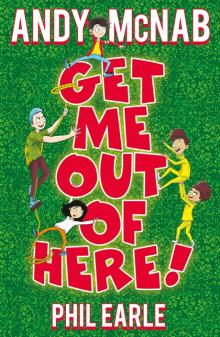 Get Me Out of Here!
Get Me Out of Here!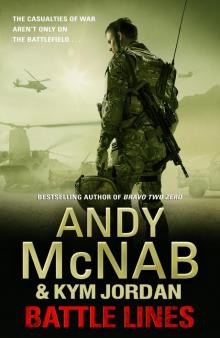 Battle Lines
Battle Lines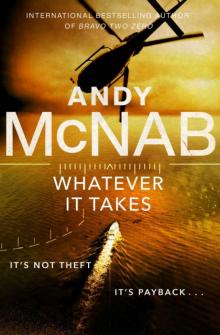 Whatever It Takes
Whatever It Takes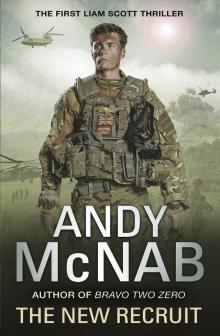 The New Recruit
The New Recruit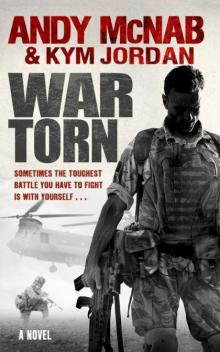 War Torn
War Torn Brute Force
Brute Force Crossfire
Crossfire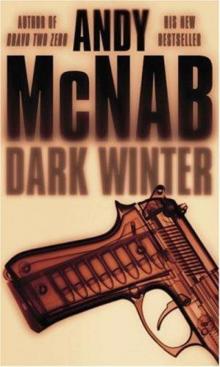 Dark Winter ns-6
Dark Winter ns-6 The Grey Man
The Grey Man Spoken from the Front
Spoken from the Front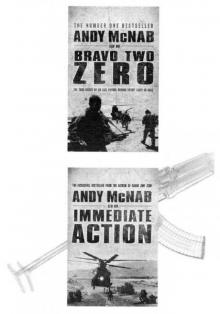 Meltdown
Meltdown Recoil
Recoil Nick Stone 1 - Remote Control.
Nick Stone 1 - Remote Control.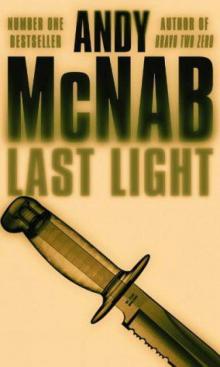 Last Light ns-4
Last Light ns-4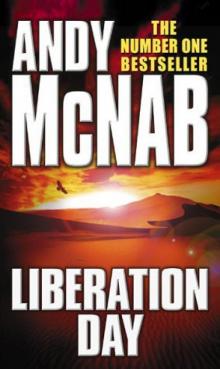 Liberation day
Liberation day Deep Black
Deep Black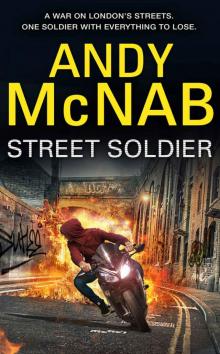 Street Soldier
Street Soldier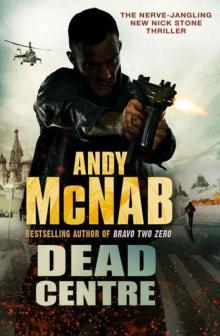 Dead Centre ns-14
Dead Centre ns-14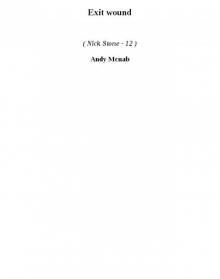 Exit wound ns-12
Exit wound ns-12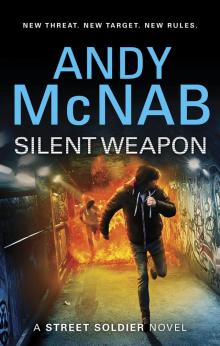 Silent Weapon
Silent Weapon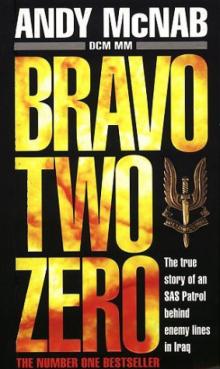 Bravo two zero
Bravo two zero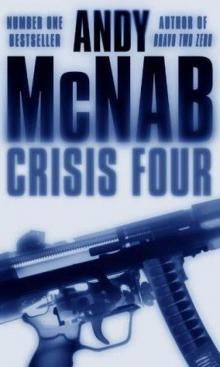 Crisis Four ns-2
Crisis Four ns-2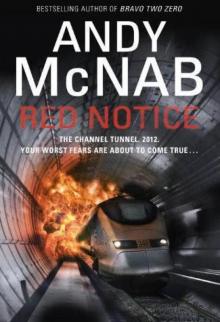 Red Notice
Red Notice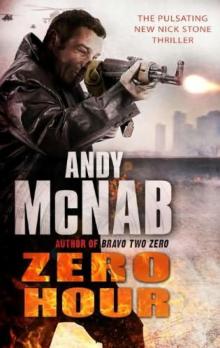 NS13 Zero Hour
NS13 Zero Hour Firewall
Firewall Last Light
Last Light Aggressor
Aggressor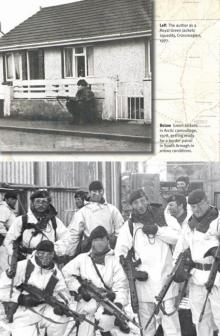 Seven Troop
Seven Troop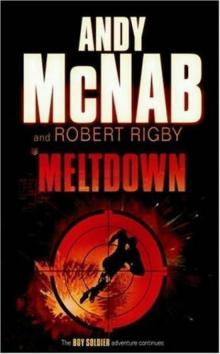 Meltdown bs-4
Meltdown bs-4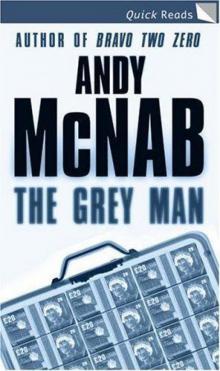 The Grey Man (quick reads)
The Grey Man (quick reads)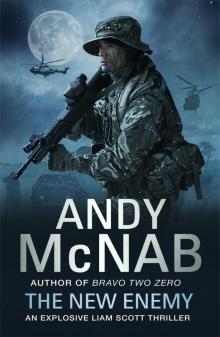 The New Enemy
The New Enemy Avenger
Avenger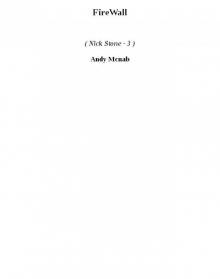 FireWall ns-3
FireWall ns-3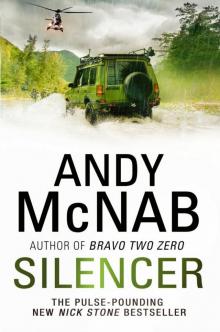 Silencer
Silencer Last Night-Another Soldier…
Last Night-Another Soldier…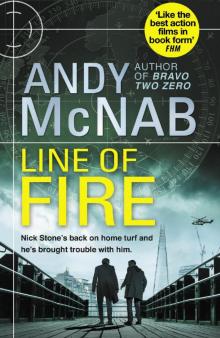 Line of Fire:
Line of Fire: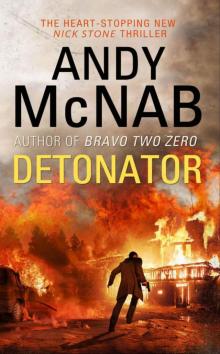 Detonator
Detonator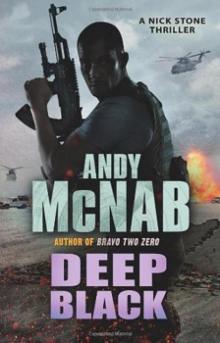 Deep Black ns-7
Deep Black ns-7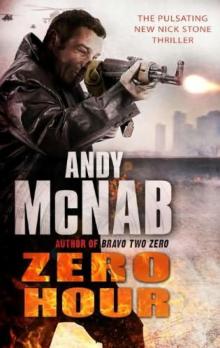 Zero Hour (2010) ns-13
Zero Hour (2010) ns-13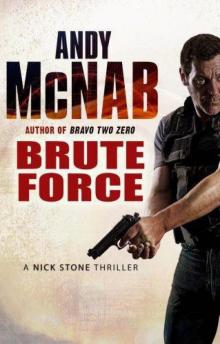 Brute Force ns-11
Brute Force ns-11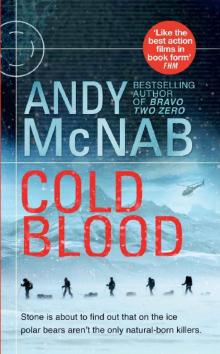 Cold Blood
Cold Blood Terminal Velocity
Terminal Velocity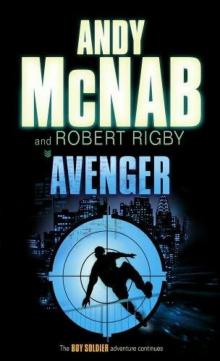 Avenger bs-3
Avenger bs-3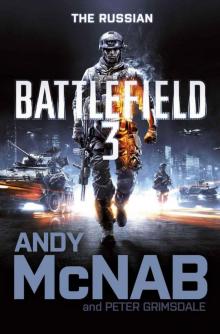 Battlefield 3: The Russian
Battlefield 3: The Russian DropZone
DropZone Zero Hour
Zero Hour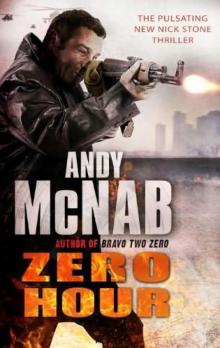 NS13 Zero Hour (2010)
NS13 Zero Hour (2010)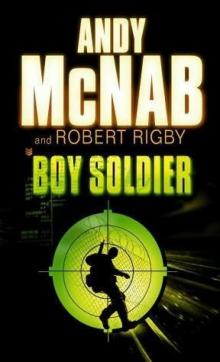 Boy soldier bs-1
Boy soldier bs-1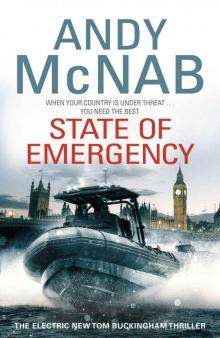 State Of Emergency: (Tom Buckingham Thriller 3)
State Of Emergency: (Tom Buckingham Thriller 3)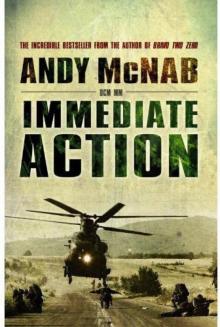 Immediate Action
Immediate Action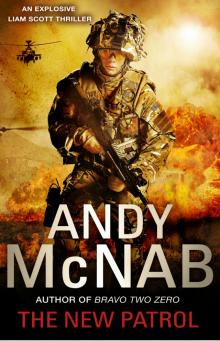 The New Patrol
The New Patrol Crisis Four
Crisis Four Boy Soldier
Boy Soldier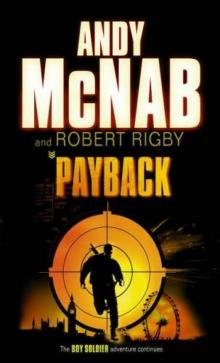 Payback bs-2
Payback bs-2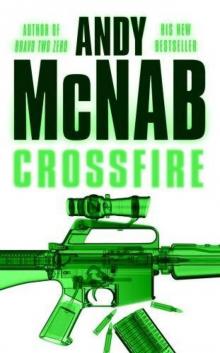 Crossfire ns-10
Crossfire ns-10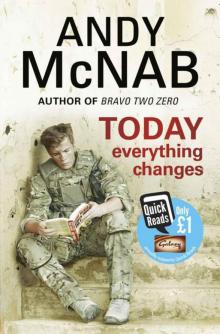 Today Everything Changes: Quick Read
Today Everything Changes: Quick Read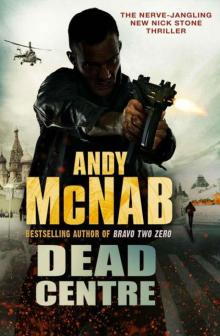 Dead Centre
Dead Centre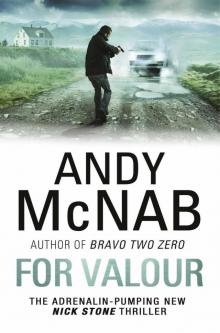 For Valour
For Valour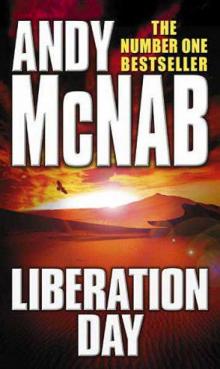 Liberation Day ns-5
Liberation Day ns-5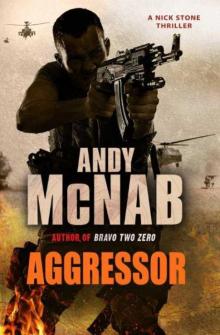 Aggressor ns-8
Aggressor ns-8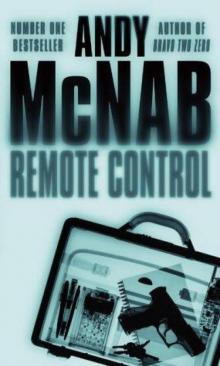 Remote Control ns-1
Remote Control ns-1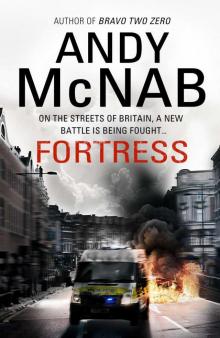 Fortress
Fortress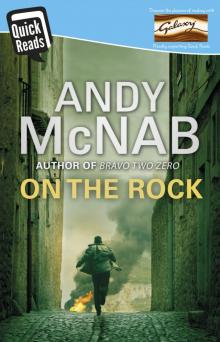 On the Rock
On the Rock Dark Winter
Dark Winter